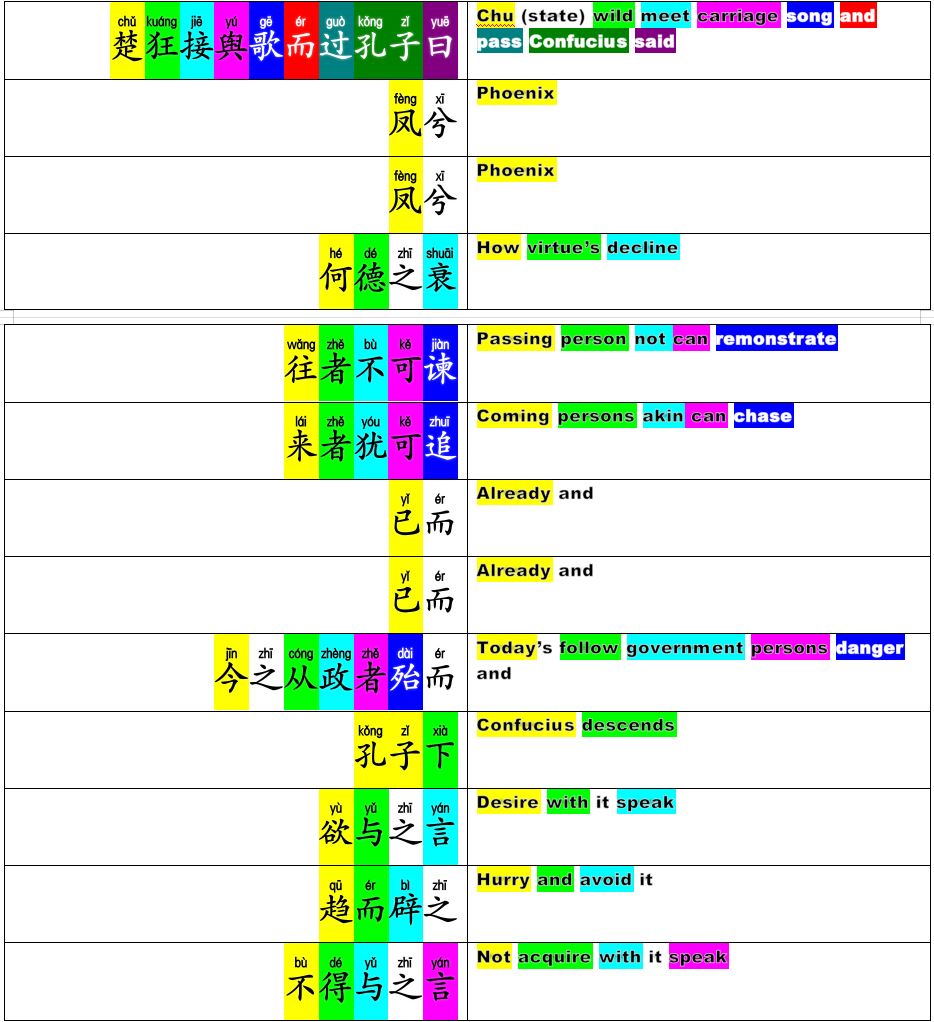Analects 18.5
Original Text:
楚狂接舆歌而过孔子曰凤兮凤兮何德之衰往者不可谏来者犹可追已而已而今之从政者殆而孔子下欲与之言趋而辟之不得与之言
Translation:

Other Translations:
Jieyu, the Madman of Chu, passed by Confucius singing a song:
“Oh phoenix! Oh phoenix!
Why has your Virtue so declined?
What is past is beyond remonstration,
But the future can still be pursued.
Give it up! Give it up!
Those who participate in government these days court nothing but danger.”
Confucius descended from his carriage and wished to speak with him, but Jieyu scurried away and avoided him. Therefore Confucius did not get to speak with him.
Confucius, & Slingerland, E. (2003). Analects: With selections from traditional commentaries. Hackett Publishing.
Jie Yu, the madman of Chu, passed by Confucius, singing these words:
Phoenix, phoenix,
how your virtue has ebbed away!
What’s past has gone beyond mending
but what’s to come is still within reach.
Leave off! Leave off!
Danger waits those who work at governing today!
Confucius got down from his carriage, hoping to speak with him, but the madman ran away and hid, and he was never able to speak to him.
Confucius, & Watson, B. (2007). The Analects of Confucius. Columbia University Press.


